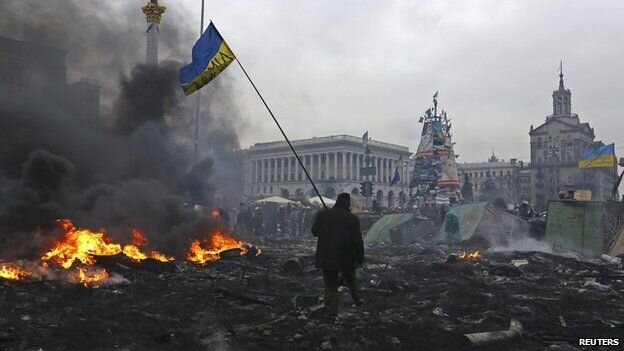
TEHRAN — Elahe Kolaei, a professor at the University of Tehran, said on Sunday that the invasion of Ukraine by Russia is a continuation of Moscow’s efforts to prevent Ukraine from joining the Western bloc.
On February 21, Russia recognized Donetsk and Luhansk as independent republics. Three days later it launched attacks on Ukraine from land, sea and air.
“Russia has insisted on its special privileges regarding the countries which were part of the Soviet Union for the past three decades, and Ukraine is one of these countries,” Kolaei, an expert on Russia and former Soviet republics, told IRNA.
Kolaei continued by saying that Ukraine is the second power among the republics that survived the collapse of the Soviet Union, which is located on the shores of the Black Sea and in a very important position in the zone between Russia and NATO members.
NATO expanded in Eastern Europe after the dissolution of the Warsaw Pact
Asked how serious Ukraine's membership in NATO was and what dangers it posed to Russia, she said Russia has been emphasizing the issue of NATO for many years, saying that these countries should not be members of NATO and expected to receive a response.
“With the dissolution of the Warsaw Pact, Russia expected that the United States and Europe would dissolve NATO too, but this did not happen. Not only did NATO not disintegrate, but it expanded to Eastern Europe, accommodating countries in the region and moving to the former Soviet republics,” she explained.
She then noted that even when there were very good relations between Russia and the West, in the first years after the collapse of the Soviet Union and during the Yeltsin era, Russia announced that it would join NATO.
“Later, as the differences escalated, all agreements between Russia and NATO were conditional on NATO not entering the former Russian republics. This issue has always been emphasized by Russia for 25 years,” Kolaei emphasized.
Ukraine and Georgia’s efforts to join NATO
The professor said when tensions between these republics and Russia developed and Russia's tension with the West intensified, some countries like Ukraine and Georgia made hard efforts to join NATO, which has always faced Russian opposition.
“In fact, what we are witnessing today in the Russian military invasion of Ukraine is the continuation of the efforts that Russia is making to prevent Ukraine from joining the Western bloc, both economically and politically and security-wise,” she noted, adding that this has led Russia to resort to its latest diplomatic tool, which has always had a special place among Russian tools, namely military tools.
Russian Westerners believed NATO was not enemy of Russia
Referring to changes in Russia during the years since the collapse of the Soviet Union, the expert said, “Western-minded persons who ruled Russia in the first years after the collapse of the Soviet believed that Russia had no enemy and that NATO was not Russia's enemy. NATO also experienced significant changes in its post-Cold War missions and operations in the 1990s. From Moscow's point of view, NATO was moving from political-security to military-security. Thus, in the first years after the collapse of the Soviet Union, Russia did not have much opposition to NATO activities, and even the Russia-NATO Council was formed, and there was extensive cooperation between Russia and NATO.”
Kolaei noted that as the gap between Russia and the United States and European countries widens, so does Russia's view of NATO.
The gap is to the extent that in Russia's latest security rites and in its political-military documents, NATO is considered and introduced as an enemy and a threat, the professor remarked.
She continued, "Therefore, for a country like Ukraine, which is very important for Russia in terms of identity and history, as well as economically, politically, strategically and geopolitically, joining an 'enemy institution' was unacceptable for Moscow.”

No comments:
Post a Comment